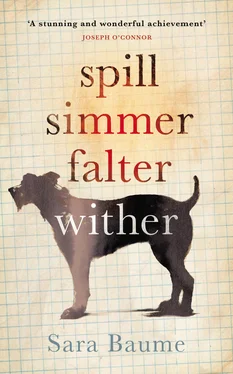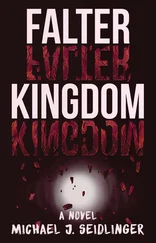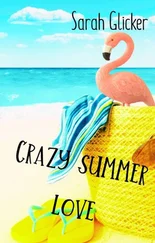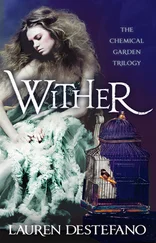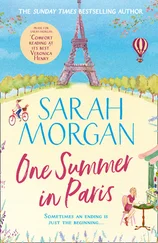There were hardly any other visitors. What few there were we saw over and over as we followed the recommended strolling routes from the aviary through the reptile house, past monkey island to the buffalo plains. All the playground rides were empty and my father told me I was allowed to play on any one I chose. But I wasn’t interested in the seasaws and slides and swings. All I wanted was to look at the birds, the lizards, the big cats and tiny, red pandas.
There’s nothing sadder than a rainy zoo, or wildlife park. All the creatures look either slightly dejected or slightly deranged. The big ones paced their enclosures. The small ones cowered under something and I couldn’t tell if they were sheltering from the downpour or trying to hide. I moved on reluctantly from each compound. I wanted to stay there forever amongst all the sad animals. As the rain grew heavier, my father coaxed me into the gorilla house, then left me to go and stand in the doorway and smoke. There was a gigantic silverback leaning against the window of his enclosure. His hands were so humanlike, his nails exquisitely kempt, much more so than my own. Slowly, slowly, he extended the index finger of his right hand and placed its tip against the glass. I lifted mine and laid it level on the other side. And we stayed like that a long while, until my father came back and told me it was time to go.
Once we were home again, my father went to his room to fetch something. At first I thought he was giving me a small cage with an assortment of plastic toys inside, but then I saw its inhabitant. Its eyes were spearing black, its cheek pouches lumpy with stashed seeds. It gripped a bar in either front paw and I remember thinking that all it needed was a stripy jumper to be a perfect cartoon convict.
‘It’s a Russian Dwarf,’ my father said. But it wasn’t. It was a hamster.
I can’t remember the exact date of my tenth birthday, but every Wednesday in summer for years and years after I looked out for it, I waited for it to be acknowledged again.

Little by little, the pothole tar remembers how to melt. The wind turbines on the further hills cease their impetuous whirling. Their white trunks vanish into the low mist; their blades against the blue sky look as though they’ve been drawn in Tipp-Ex. The sprat organise into torrents and storm into the bay, mackerel hot on their tail fins.
I watch as you eat the only raspberry on my bush. You smell its ripeness on the breeze and snuffle between the saw-toothed leaves, now nibble it clean to the core with bizarre delicacy, drupelet by drupelet. You’re so engrossed by the berry you don’t see me watching, behind you in the doorway beneath the lintel, coffee cup in hand, cigarette stuck behind my ear. You don’t hear as I let loose a soft snort of laughter.
My father had a laugh like a rainstick, like a thousand grains of raw rice bouncing about inside his throat. He’d blow his nostrils wide and crinkle his cheeks up, but the noise always remained lodged just below his mouth hole, like the sausage. When my father laughed it was mostly over re-runs of comedy shows from the 1970s. Sometimes I laughed with him and while my congenial laugh wasn’t exactly false, it was always on cue, it was always stiff.
I’m particularly fond of sitting in the sun, of basking. It’s a fondness which shows in the skin of my face, scorched over decades to a permanent tan, dappled by dubious freckles and shape-shifting blotches, no doubt the beginning of leisurely carcinomas. Still I cannot help myself. When I sit out to bask, I feel the sun suffusing my bloodstream and it’s like the effects of a tobacco which cannot be pouched. I am instantly revived, inspirited.
Now I see you’re a basker too. Together we sit out every fine day. In our concrete paddock, our yard-sized universe, we watch as the shadow of the roof steadily skulks across the gravel. I haul the patio chair in line with the shrinking light. You follow and lie at my feet. I haul it as far as the stone fence, to the point where the sun slips into next door, and is lost. Betrayed by the roof, now we bob about the yard, now we fidget like litter on the surface of the ocean. You are nibbling the leaves off a vine of poison ivy. There’s a mischievous tilt to your head, as though you’re consciously mocking death. I notice an ant, another ant; now I count the ants. See how they’re suddenly infinite, when just a moment ago there was only one.
I long to go to the beach, not just at dawn when the heat’s a little feeble. I long to go now, to walk to the end of the strand furthest from the car park where hardly anybody else ever bothers to walk, and to spread a rug there, to bask. But I’m afraid of being gawped at, and I’m afraid of leading you into a wonderland of things to clamp. Now everybody’s on their holidays and willing to travel from all over the green and concrete county to reach the open blue, the beach will be too busy, and a busy beach is a baited trap. I’m afraid of the fair-weather strangers, of their pets and children, of the trouble they make and how it might make trouble for us.
There must be, somewhere, a place left behind by the wearers of swimsuits and pitchers of windbreaks and preparers of picnics. The sun’s still high above the chimney pots, so let’s strike off and drive around, see if we can find some small piece of abandoned coastline. Into the car and out of the village, we turn down every overgrown boreen which looks as though it might eventually subside into horizon. Sometimes there are private residences and sometimes there are NO TRESSPASSING signs and sometimes there are bulls who mistake me for their farmer, pick themselves up and trundle toward the silage trough. See the butterflies in the road up ahead, their wings swatting the sunlight as they twirl. But I forget to ease my foot from the accelerator, and now the butterflies crash and split against our windscreen. Just for a second before they’re gone, I see they’re red admirals. They leave two tiny smears of gunk and a strange dust on the glass, a glittering dust. Did you see them? Did you see the red admirals?
At last, here’s the ghost of a track which tapers into an expanse of springy grass, and collapses away down the clifftop.

The clifftop is studded with scabious, chamomile, campion. Ladybirds hug the grass stalks. Hoverflies tread the air. Cuckoo spit slurs through your coat as you bound to the edge. Now here’s silverweed, its under-leaves gilded like the scales of a white-fleshed fish.
The track leads down slope. The earth and furze give way to sea pinks and lichen. It’s steep, but there’s a trawlerman’s blue rope bolted into the rock and strung between posts all the way to the bottom. People must have come this way before the undergrowth grew so dense, too dense to push through. I’m stamping it down; you’re tunnelling beneath. At the bottom, there’s a pebbled beach only as big as a disabled parking space, no good for sandcastles or windbreaks and submerged by several feet of sea at high tide, I’m guessing. It’s a beach hostile to holiday-makers, to day-trippers, to fair-weather strangers. My trouser legs are nicked from the furze’s tiny fangs, my wrists are nettled. Purple grass-seeds rest amongst your curls and you are sneezing, sneezing, sneezing from the pollen-clogged air. But it’s low tide, so it’s perfect.
Tomorrow, once our slanted slates have collided with the course of the sun, we’ll come back here, I promise. We’ll scramble the way of the blue rope. I’ll bring sandwiches and gingernuts, a rag rug to spread across the pebbles. I’ll wedge your water dish between stones, take my book out, find the page with its corner folded, and bask. The slope’s pocked by burrow holes, smattered with dehydrated droppings. Free of the leash, you disappear into the clay at the base of the cliff to exhume the rabbit subways. But the rabbits have long surrendered their old roads to the ravaging roots of the gorse thicket. You don’t get very far and now your face is caked in red dust, scrawled into markings like warpaint, like you are the African prince named on your tag. You settle beside me, maggot twitching and eyeball swivelling. Well, what do you think? Will we come back tomorrow, and the day after, and the day after again?
Читать дальше
